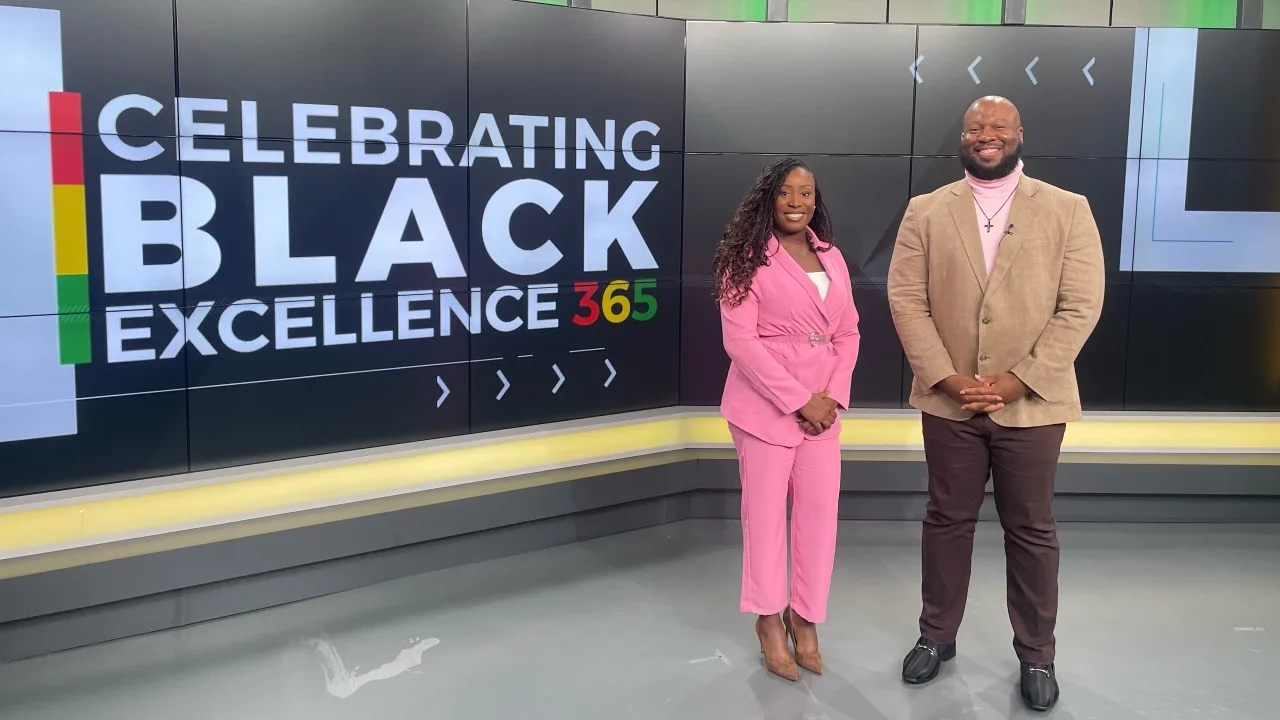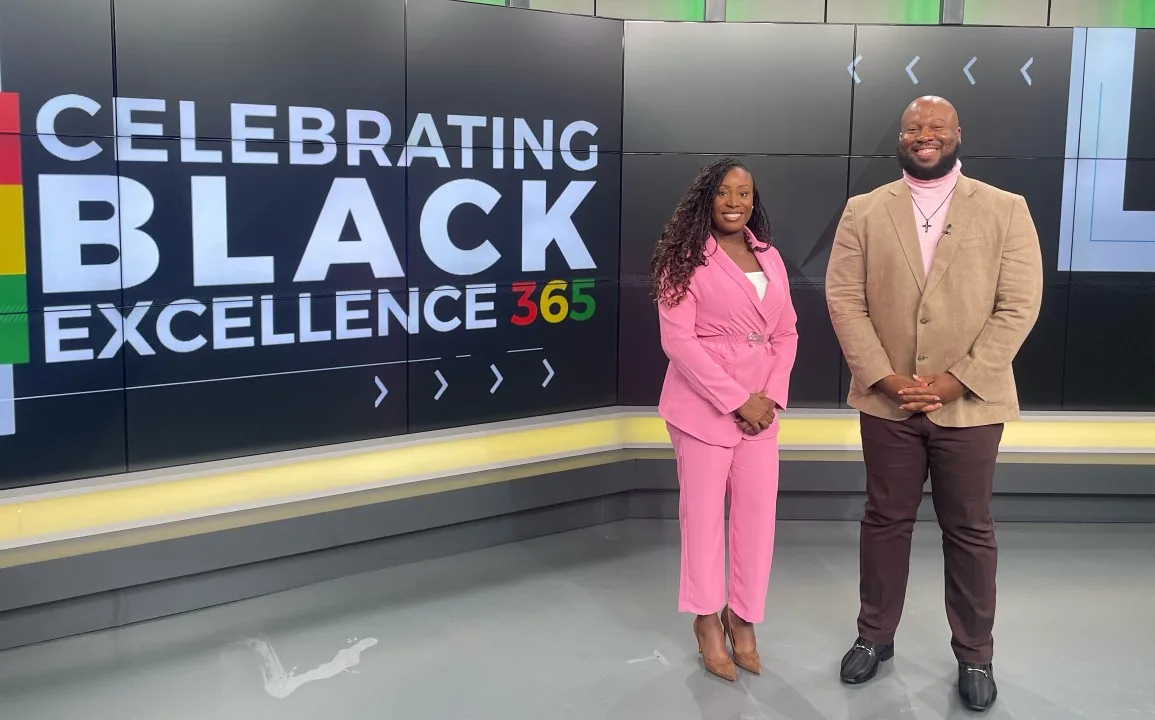
AUGUSTA, Ga. (WJBF) – October is Breast Cancer Awareness Month, and Dr. Samantha Jones is an active participant in the fight against cancer when it comes to research and studying the major impacts this disease can have especially when it comes to the disparity in the African-American community.
Thank you for joining us here on Celebrating Black Excellence. Now, Dr. Jones, you are the assistant professor with family and community medicine at Augusta University. What or who inspired you to get to start studying medicine?
So, I’m actually from Augusta, Georgia, and growing up when I was a little girl, I watched my great grandmother take a lot of medication. She had a few health issues, and I was always really curious and wondering how much she actually understood the medications that she was taking and what her health conditions consisted of. I knew that she went to the doctor often, but I didn’t know if there was really good communication with how to really achieve her optimum health. That kind of just got me interested. I was really curious from there. I’ve always been interested in social justice, I think, and I was always trying to figure out for disenfranchised communities what I can do on the site to make sure that those communities can achieve optimum health.
Now, your research is on breast cancer in the African-American community. Why did you choose that particular field?
So, although those statistically Black women have a lower chance of getting breast cancer compared to White women in other racial or ethnic groups, Black women have a 40% higher mortality rate than any other group of women. So again, although we are diagnosed less, we die 40% more often than other groups. So, we’re really trying to figure out what that is about. We also get more aggressive forms of breast cancer. So, even though there’s a pretty high survival rate for breast cancer overall right now, there is still a ten-point difference between White women and Black women as far as five-year survival. Again, we get more aggressive forms of cancer, and it is often diagnosed later. So, there are still a lot of things that need to be done to kind of close those gaps with treatment and survival.
So, how important is it for us to make sure that we are getting our routine screenings and our checkups?
So, African-Americans tend to have cancer diagnosis later, and we know that early detection is the best because that’s the best chance of getting it treated properly and then being able to move on with your life. We know that the later that cancer is diagnosed, if it’s in stage three or stage four where it has spread throughout the body, it is much tougher to treat. It’s more costly. So, it’s very important for people to understand their risk and to understand what age they need to be screened it and to make sure they’re consistently getting their screenings on time. We just went through the COVID-19 pandemic. A lot of people kind of calmed down on going out and getting their screenings, which is something that, you know, is of concern because we want to make sure that everybody stays up to date because there tends to sometimes be when a person waits after they are of that age where they should be getting screened. If they wait, sometimes, very often are too long, that’s often when a lot of cancers are called if there has been three or four years when you have not gone to get a screening test, you know, yearly screening.
How has your research impacted community? Have you seen an impact with what you’ve done?
So, I’ve seen people who feel listened to, who feel heard, who feel like we are really out and trying to connect with them and help them understand because a big part of what I want to do is help underserved communities understand in health risk, what they’re at risk for, and how they can lower their risk for certain diseases, especially cancer. So what I understand is that our communities want to know how they can prevent certain diseases and how they can stay healthy. A lot of times our health system doesn’t reach out and doesn’t connect, and then, we have a little disconnect sometimes with the community as far as trust is involved. And so, a lot of people don’t want to come in and onto a medical campus because they’re afraid they don’t know what’s going to happen next. And so, when we go out into the community, people have really embraced us and really feel that we are helping to kind of have that talk and have that communication and let people know what their risk factors are and how they can prevent cancer.
Now, where do you see yourself in the fight against cancer within the next few years?
So, one of my biggest interests is having representation in all types of health research, but definitely in cancer research because of the large disparities that we have that are racial and as far as underserved communities in general. So, I really am interested in building a big research team where I have individuals from historically Black colleges or universities or just Black researchers, Black and Brown researchers, who look like the community and come from the community and understand some of the dynamics that we have. So, we really want to get people interested in clinical trials because we know that the more we study our unique biology, the more we can find treatments that are specific to us and that work for underserved and minority communities.
Right now, cancer definitely impacts people more than they know; it could be directly or indirectly. We all know someone who has been impacted by cancer. Are there any encouraging words that you can give to the community when it comes to the fight with cancer?
So, every year we are making strides. Every year, the survival rate is going up. Unfortunately, we do have risk. New cancer cases are starting to be on the rise, but we are understanding where every day we’re working to understand why this happening. We’re working to learn what we can do to keep ourselves healthy. So, we’re learning about exercise, proper diet, stress reduction, and all types of things that can help us. We’re looking at DNA now. We’re looking at early screening. We’re looking at genetic testing so that people know their risk. So, every day we’re moving for more and more so that we can know our risk and that we can learn how to prevent cancer. So, we can find it early, it can be treated, and people can still continue to live a normal life.


